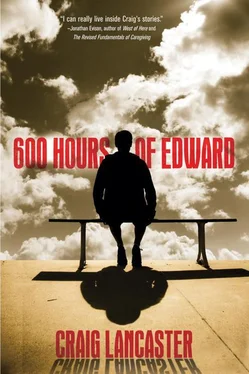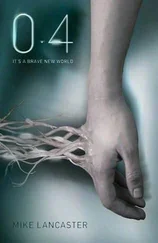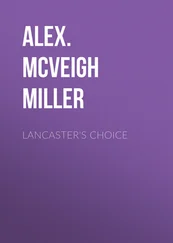“My father died. It sort of jumbled up my schedule.”
She looks crestfallen. “Oh, I’m so sorry.”
“It’s OK.”
“Well,” she says, holding up the Dreyer’s, “ice cream makes excellent comfort food.”
“Yes.”
She finishes ringing up my items.
“OK, that will be fifty-four dollars and seventy-eight cents,” she says.
I swipe my card through the electronic reader, hit the credit option, and wait for the receipt to come up. When it does, I sign my name.
“Thanks so much. It was good to see you,” the woman at the checkout stand says. “Take care.”
I tell her good-bye.
As I’m walking back to the Cadillac, I think it’s interesting that I’ve never before had a conversation at the grocery store. That was fun.
– • –
For what it’s worth—and that’s not much, until I get the actual facts tomorrow—the weather forecast in the Billings Herald-Gleaner agrees with me: It’s going to be a cold one today, with a high of thirty-six and a low of twenty-two. It’s all just conjecture at this point, and I prefer the facts. Here are two: Yesterday’s high temperature was forty-eight, and the low was thirty-four. I record these things in my notebook, and my data is complete. I then finish off the last few bites of my corn flakes and chase my fluoxetine with orange juice, and my breakfast is complete, too.
Mr. Withers didn’t say how I should dress for our meeting today, so I am going to err on the side of formality and wear my George Foreman suit and shirt with blue stripes. I wore the same thing on my date with Joy-Annette, which momentarily gives me pause. But I have known Mr. Withers for a long time, and I have no anxiety that he will wig out on me like Joy-Annette did. I think it will be OK. That I’m wearing the same outfit is just coincidence. It doesn’t mean anything.
I head for the shower. I must keep moving so I am clean and dressed and at the Billings Herald-Gleaner by 10:00 a.m. sharp.
– • –
The woman at the front desk has a kind, cheerful face. “Can I help you?”
“Mr. Withers, please.”
“Is he expecting you?”
“Yes.”
“Your name?”
“Edward Stanton.”
She picks up the phone and punches in a number. “There’s an Edward Stanton here to see you. Yes, OK.” She hangs up.
“He’ll be right down.”
I glance around the foyer of the Herald-Gleaner. The woman I’ve been talking to is behind a big glass wall, and through it, I can see dozens of cubicles, with people in them typing away on computers or looking down at paperwork. Along the wall to the left, on the north side of the building, are glass offices. In the middle of the big room beyond the glass wall is a small table in a small pit surrounded by what appear to be trees. I can’t tell if the trees are real, though. They look real; some of the leaves are withering. But I also know that manufacturers have gotten very good at making fake things look real. I will have to ask Mr. Withers about this.
Beyond the trees is a room with glass windows on three sides, a big table, and lots of chairs. Important meetings probably go on in there. To the right are more cubicles and more glass offices along the south wall. The Herald-Gleaner is a very active, important-looking place.
“Edward, my boy!” The booming voice of Mr. Withers comes at me from behind the glass. I would recognize it anywhere. He pushes open a door and tells me to come in.
“How are you, Edward?” he asks, offering a handshake, which I accept.
“I’m doing well.”
“Excellent, excellent.”
I have seen Mr. Withers only a few times since I graduated from Billings West High School twenty-one years ago. Back then, he was probably younger than I am now, perhaps around thirty-five or thirty-six years old. Now he’s in his mid-fifties, the reddish-brown hair that I remember gone fully gray. He’s a little heavier and a little more crinkly around the eyes, but the voice and the manner are the same.
“Edward, again, I was so sorry to hear about your dad. He was a good man.”
“Yes.”
He claps me on the shoulder. “Well, my boy, come on upstairs with me. We have a lot to talk about.”
– • –
On the walk up the stairs, Mr. Withers is telling me about his job at the Herald-Gleaner.
“I’m the operations director,” he says. “That means, essentially, that I keep things running around here. That has to do with mechanical things, like the press, and the maintenance of the offices and the grounds. It’s a lot of responsibility. It’s a big place. I’ll show you more of it in a bit.”
“Why did you leave Billings West?”
“I’d been there thirty-three years. It was time. I had my full pension, and the principals and regulations were getting harder and harder to deal with. I felt like it was time for a change. You know that feeling, Edward?”
“Yes.” I have been experiencing it a lot lately.
“Anyway, here’s my office,” he says, ushering me into a small room that overlooks Fourth Avenue N., one of the busier streets in Billings. “Have a seat.”
I sit down, and Mr. Withers settles in behind his desk.
“The reason I wrote to you, Edward, is that I want you to come work for me.”
I had not expected this, and so I can come up with only one word.
“Why?”
“I need someone like you. You’re good with your hands, and you can figure out anything mechanical. This place is forty years old. It needs a lot of maintenance. I figure you’re the guy who can help me.”
“When?” I am simultaneously excited and scared. It has been a long time since I worked anywhere.
“I’m thinking I’ll have you work what’s called the swing shift. It’s from the late afternoon until around midnight,” Mr. Withers says. Then, his voice gets a little lower and more serious. “Edward, I know about how you need to be left alone to do work. I know why. This job, you’ll be allowed to do that. You’ll report to me, but when you’re here, you’ll be working on tasks that I assign and that you’ll be able to do yourself. Do you understand what I’m saying?”
“Yes.”
“Good,” he says, reverting to his usual cheer. “What do you say we take a look around?”
– • –
Mr. Withers takes me all over the Herald-Gleaner and explains to me what each part of the building does.
The north side of the building, he says, is where the advertising and marketing staffs work, selling ads for the newspaper and its website and working on promotions and such. He introduces me to a lot of people, and I can’t remember all of their names.
On the south side of the building is the editorial staff—the reporters and editors and photographers who cover the news and make a newspaper every night. I expect a frenzy of activity, like you see in movies about newspapers, but it’s a quiet place at this time of day. A lot of people are on phones.
It turns out that the indoor tree is real. Mr. Withers smiles when I ask about it and points up to the ceiling, where there is a massive sunroof. “It’s a real pain to keep the leaves swept up,” he says.
He also shows me the press and the new packaging center, where the newspaper is merged with ads from department stores and other inserted items, like Parade magazine in the Sunday newspaper. Mr. Withers explains that the press is running much of the time—not just with each day’s newspaper, but also with specialty magazines and jobs for other publications around the region. The packaging center is vast, an addition to the building that went up just in the past year or so.
Читать дальше












